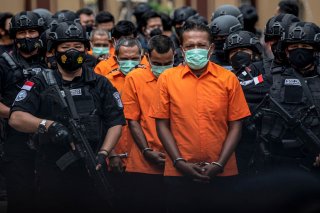The Key to Creating a Global Anti-Corruption Vaccine
Systemic corruption leads to political instability. Like a social pandemic, it destroys economic value, thwarts development, victimizes ethical people and businesses, perverts policies, and undermines democracy.
While no country is immune from corruption, too many countries have structures and legal instruments in place that actually facilitate corrupt activity by allowing the corrupt to invest and launder their money. The United States, the UK, and the long list of secrecy jurisdictions around the world factor into play in this regard. While corporate and personal financial secrecy is an understandable requirement, many of the laws and practices can easily be tightened to restrict criminal activity without impinging on legitimate corporate needs—true political will. Adding to the list of laws to limit the ability of corrupt investors to launder money, more stringent due diligence laws are needed. Laws that hold individual financial officers, corporate officers, and lawyers criminally liable for aiding corrupt officials in managing their illicit proceeds need urgent attention.
Winning Is the Best Option
The United States was on the forefront of addressing international corruption. The Foreign Corrupt Practice Act was the first legislation ever to outlaw a business bribe paid in the international market. Twenty years later in 1997, the Organization for Economic Co-operation and Development passed the Convention on Combatting Bribery of Foreign Public Officials in international business transactions, with a legally binding anti-bribery convention, signed by thirty-four members and five nonmembers. The 2003 United Nations Convention against Corruption, which came into force in 2005, is the lodestar of anti-corruption initiatives. It includes very important acts that combat foreign bribery, facilitate the extradition of corrupt officials, encourage mutual legal assistance, and assist in the recovery and return of stolen assets. Still, the results have not turned the tide on corrupt activity.
Globally, institutions such as the European Union, the Council of Europe, the Organization of American States, Transparency International, the World Bank, and the G-20 (the group of countries accounting for 85 percent of the world economy), have recognized corruption as a global problem. However, global anti-corruption policies are only as strong as the political will to enforce them.
The good news is that citizens worldwide are increasingly willing to hold their governments accountable. Technology, investigative journalism, social media and international efforts have played key roles in raising awareness about the scourge of corruption. At the end of the day, a level playing field free from corruption is the best promoter for economic activity. Serious anti-corruption programs supported by a strong rule of law, good governance, and strong institutions serve to promote security and economic entrepreneurship. Now is the time for leaders around the world to step into the field of play, demonstrate political will, and make the hard decisions that will change the destinies of countries for the better.
Valbona Zeneli is the Chair of the Strategic Initiatives Department at the George C. Marshall European Center for Security Studies.
Joseph Vann is the Director of the Program on Countering Transnational Organized Crime at the George C. Marshall European Center for Security Studies.
The views presented are those of the authors and do not necessarily represent the views of the U.S. Department of Defense or its components.

